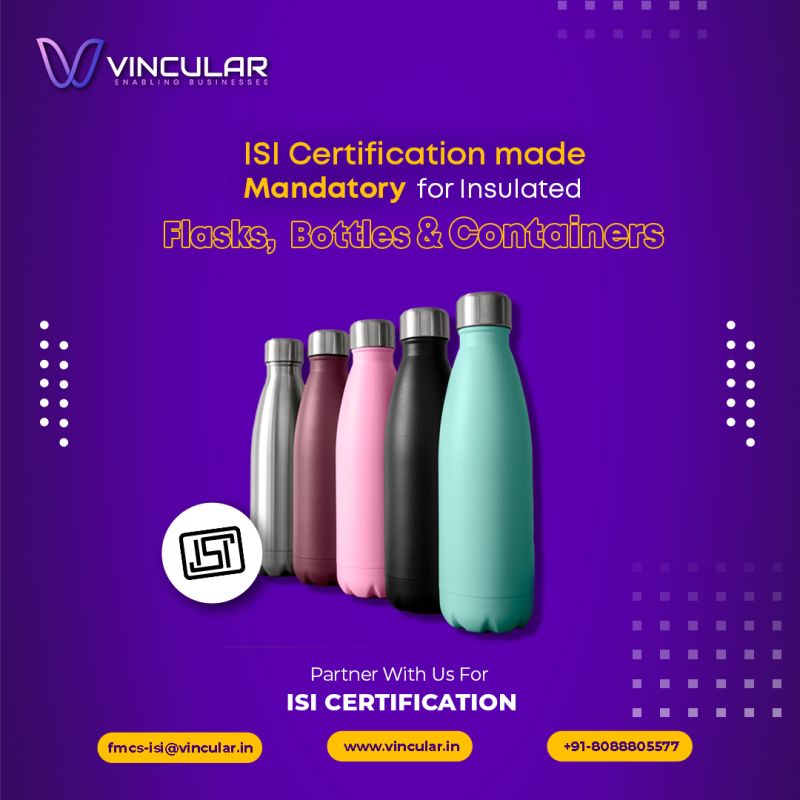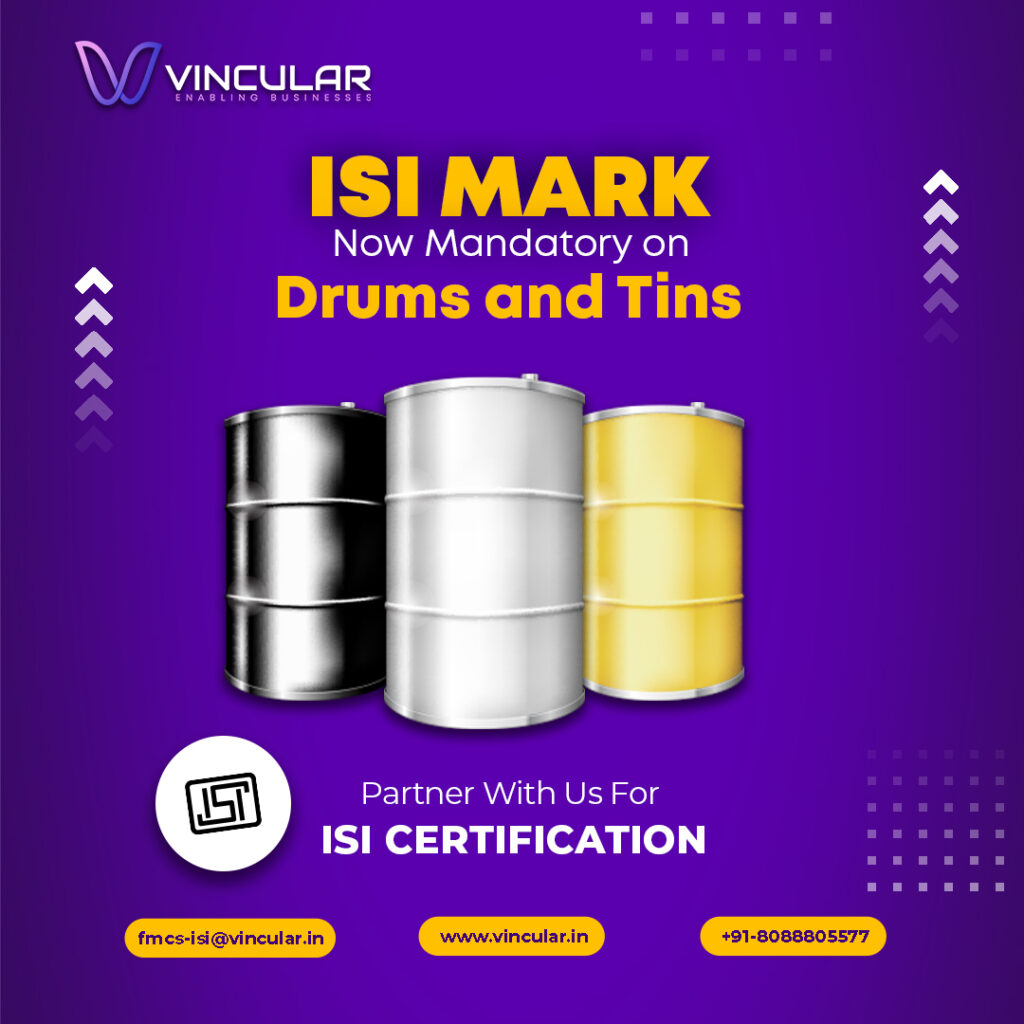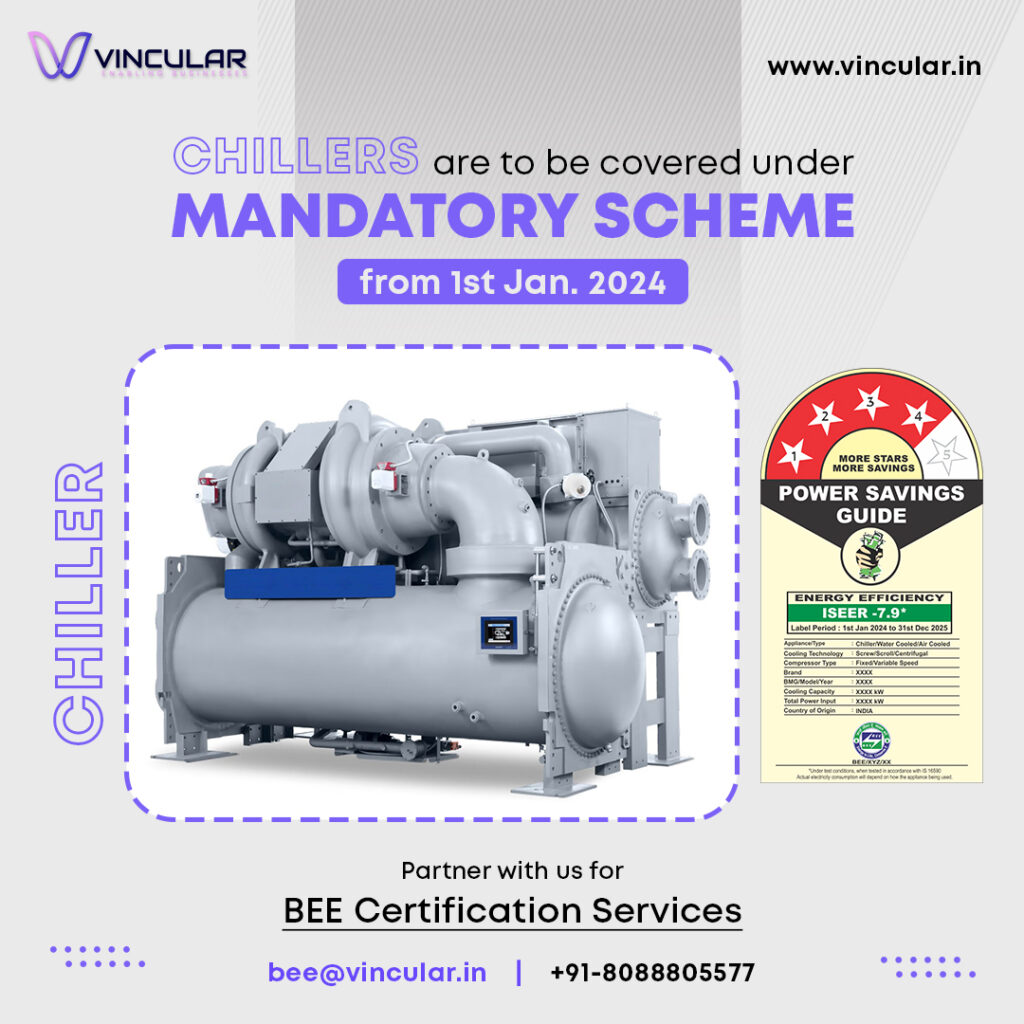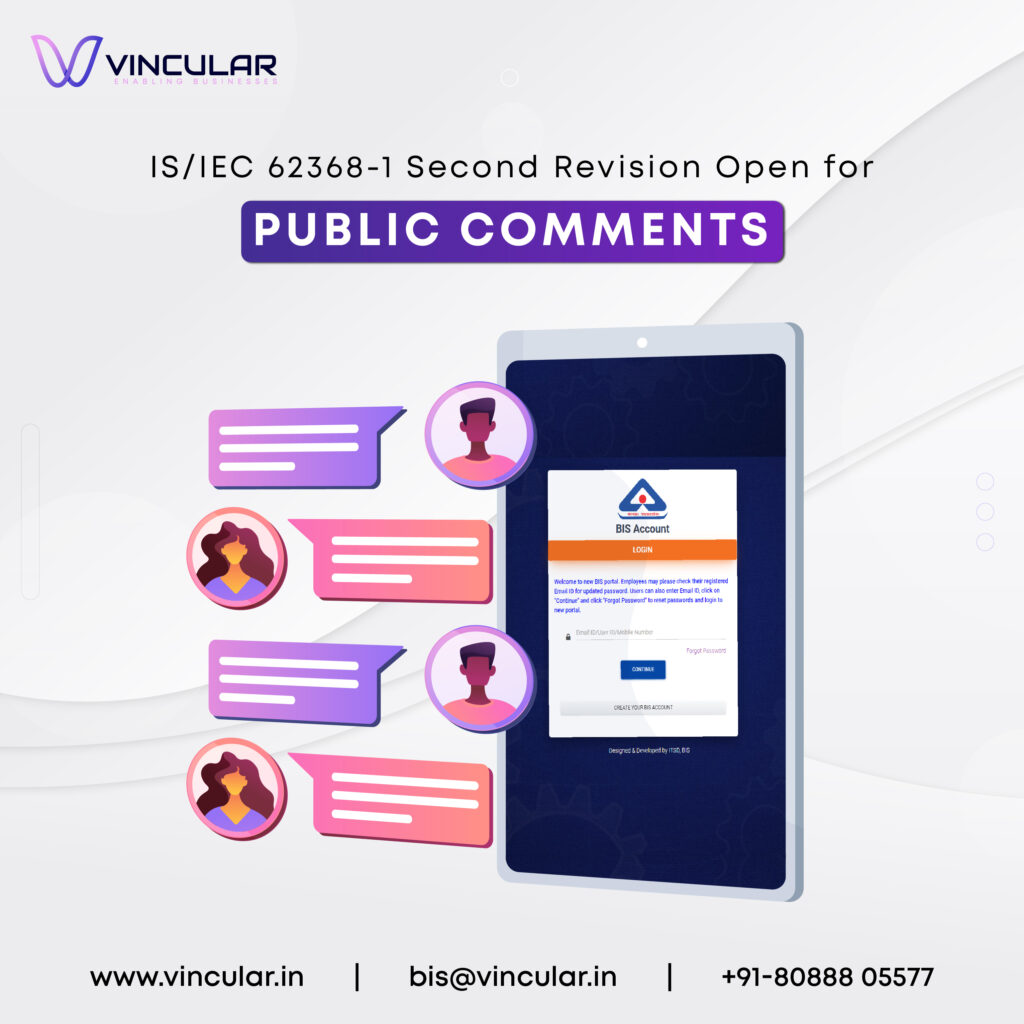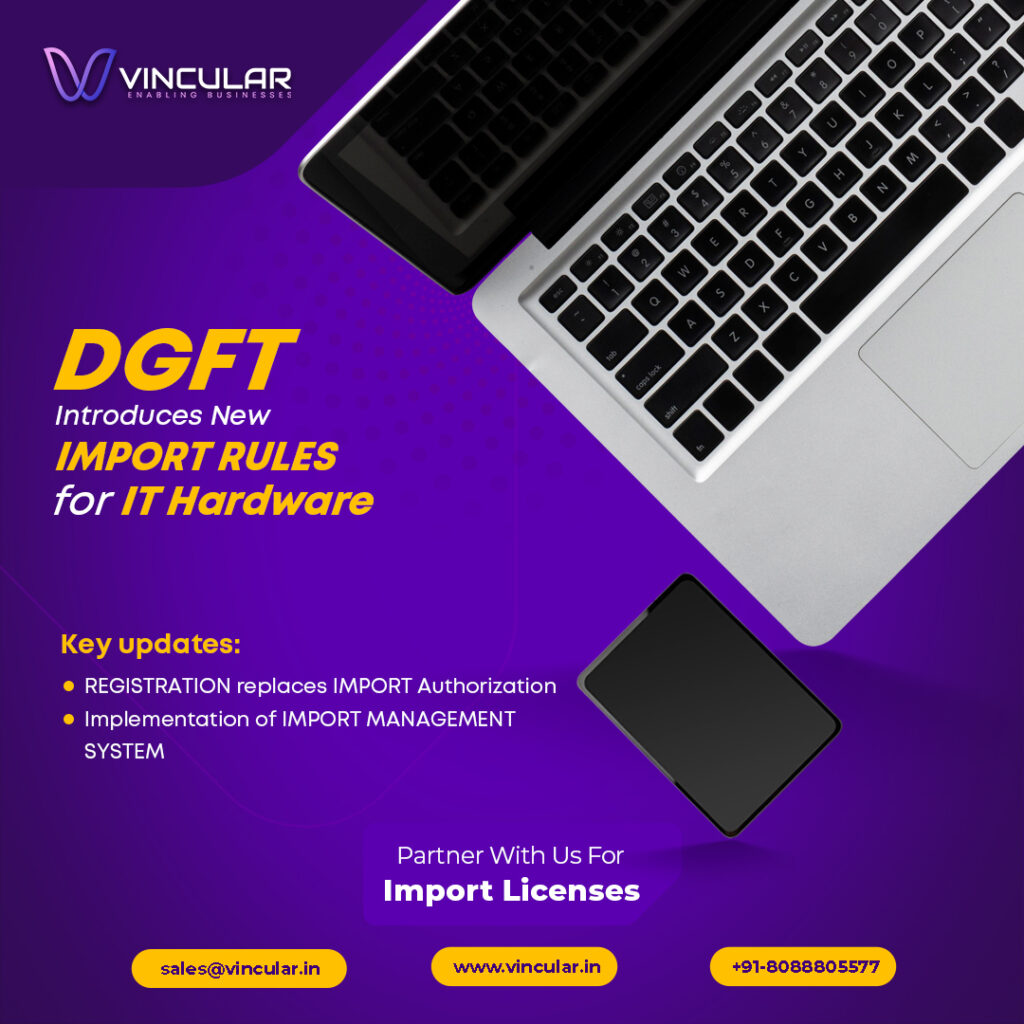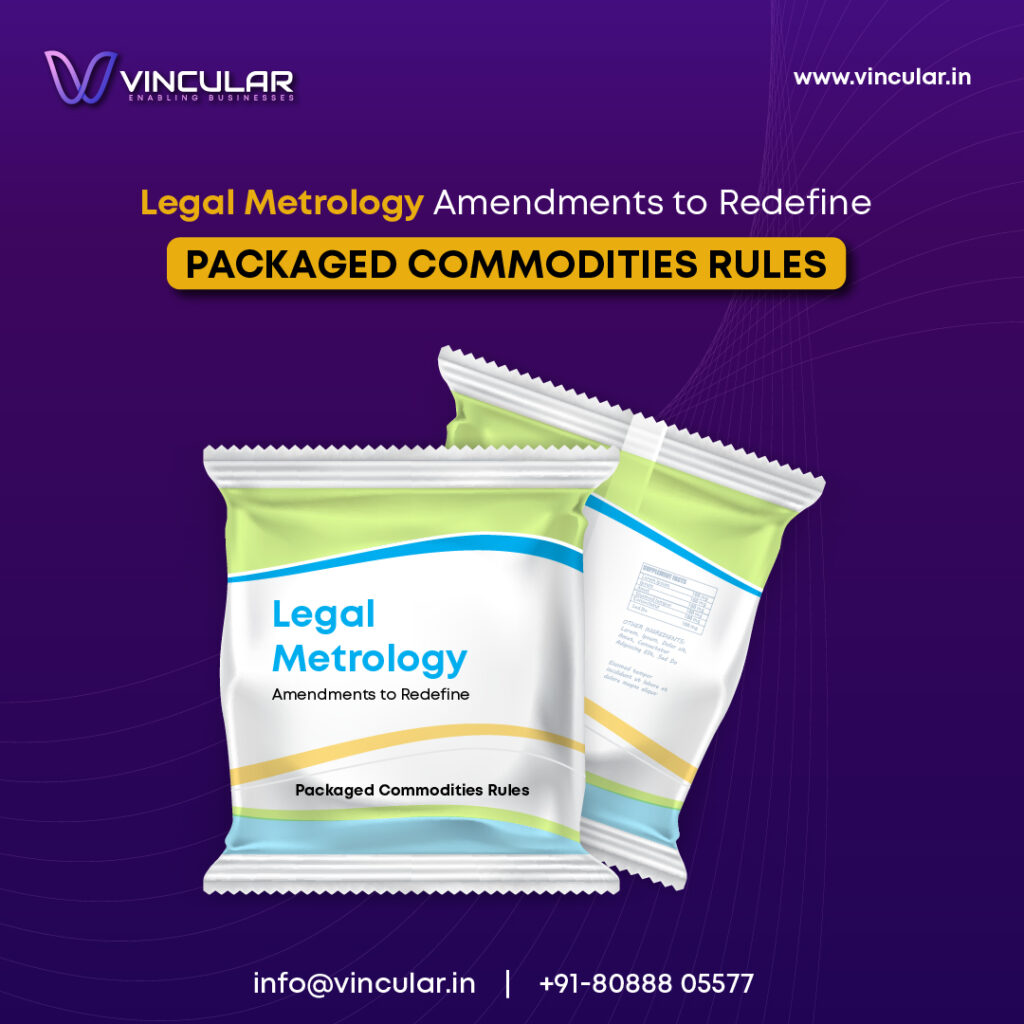ISI
Quality Standards for Domestic Insulated Flasks, Bottles, and Containers
The Department for Promotion of Industry and Internal Trade (DPIIT) issued a Quality Control Order (QCO) on July 14, 2023, and made ISI Mark mandatory for insulated flasks, bottles, and containers for domestic use to boost consumer safety and product quality.
Giving manufacturers six months to comply from the date of notification this rule will come into effect from January 2024.
Implementation Dates for Micro and Small Enterprises (MSEs) are as follows:
-
Small Enterprises: Compliance begins in April 2024.
-
Micro Enterprises: Compliance starts in July 2024.
For more details refer to the Quality Control (Order) from here.
Drink Smart, Drink Safe: ISI Certification Mandate for Water Coolers
From March 25, 2024, all self-contained drinking water coolers in India must be ISI certified under the Indian Standard IS 1475 (Part 1):2001. This is a health-saving step by the Department of Promotion of Industry and Internal Trade (DPIIT).
The implementation date for Micro, Small and Medium Enterprises is June 25, 2024. To learn more about this order, click here.
Also, to stay ahead of the curve by partnering with Vincular to achieve your ISI certification. It’s not just about compliance; it’s about safeguarding health and elevating quality.
ISI Mark made mandatory for Miscellaneous Steel Products
On 25 September 2023, the DPIIT issued a Quality Control Order (QCO) for Miscellaneous Steel Products which will come into effect from March 2024 and makes ISI Mark mandatory for the below-listed products: –
1. Steel Pipe Flanges
2. Steel Cylinders for Pipes with Mortar Lining and Coating
3. Stainless Steel Tubes for Food and Beverage
4. High-Strength Stainless Steel Bars and Wires for Concrete Reinforcement
Implementation Dates for Micro and Small Enterprises (MSEs) are as follows:
- Small Enterprises: 25 June 2024
- Micro Enterprises: 25 September 2024
This order is more than rules; it’s a solemn promise to ensure steel product quality and safety as the strength of our nation is rooted in steel, and this order reinforces that foundation.
ISI Mark Made Mandatory for Medical Textiles in India
To promote the health and safety of healthcare workers and patients, The Ministry of Textiles issued an order on September 27, 2023, for the following medical textile products to carry the ISI Mark.
-
Sanitary Napkins
-
Baby Diaper
-
Reusable Sanitary Pad, Sanitary Napkin, Period Panties
-
Shoe Covers
-
Dental Bib/Napkins
-
Bedsheet and Pillow Cover
This order applies to all stakeholders including manufacturers, wholesalers, retailers, and importers engaged in the sale and marketing of finished products in India.
Note- This Order does not apply to goods or articles designated for export or those produced by Self Help Groups (SHGs).
Timelines for implementation:
-
For all other entities: April 1, 2024.
-
For small and micro-enterprises (SMEs): October 1, 2024.
Access the official notification from here.
ISI Mark Mandated for Protective Helmets
On October 23, DPIIT issued a significant Quality Control Order (QCO) mandating 𝐈𝐒𝐈 𝐌𝐚𝐫𝐤 on Helmets for the Police Force, Civil Defence, and Personal Protection.
It’s an applaudable step taken to ensure the future of those who protect and serve our country. The order will come into effect from 23rd April 2024, giving manufacturers a six-month window.
Implementation dates for Small and Micro Enterprises (SMEs) are as follows:
-
Small Enterprises: 23rd July 2024
-
Micro Enterprises: 23rd October 2024
You can access the official notification here.
DPIIT Mandates ISI Certification for Bottled Water Dispensers
From April 23, 2024, all bottled water dispensers in India must be 𝐈𝐒𝐈 𝐂𝐞𝐫𝐭𝐢𝐟𝐢𝐞𝐝 under the Indian Standard 17681: 2022.
This mandate reflects a bold health-focused initiative undertaken by the Department of Promotion of Industry and Internal Trade (DPIIT).
Note: Nothing in this Order shall apply to goods or articles manufactured domestically for export.
Implementation dates for Small and Micro Enterprises (SMEs) are as follows:
-
Small Enterprises: 23rd July 2024
-
Micro Enterprises: 23rd October 2024
For detailed information, you can refer to the official notification.
ISI Mark Now Mandatory on Drums and Tins
In a groundbreaking move, DPIIT introduced a Quality Control Order (QCO) on October 17, 2023, making ISI Mark mandatory for Drums and Tins under the BIS-ISI scheme effective from April 17, 2024.
The ISI Mark is mandatory on the following types of drums and tins:
1. Large Open Top Drums
2. Large Drums with Fixed Ends – Grade A
3. Large Drums with Fixed Ends – Grade B
4. Steel Drums (Galvanized and Ungalvanized)
5. Bitumen Drums
6. Square Tins designed for Solid Products
7. Square Tins with a capacity of 15 Kilograms or Liters, specifically for Ghee, Vanaspati, Edible Oils, and Bakery Shortenings
Note- This directive excludes items containing powdered, semi-solid, or liquid materials when imported into India.
The enforcement dates for micro and small enterprises are as follows:
-
Small Enterprises: 17 July 2024
-
Micro Enterprises: 17 October 2024
For detailed information, you can refer to the official notification.
DPIIT Mandates ISI Mark for Door Fittings
In a proactive move to enhance consumer safety and product quality, the Department for Promotion of Industry and Internal Trade (DPIIT) issued a Quality Control Order (QCO) on October 23, 2023.
This order makes the ISI Mark mandatory for various types of door fittings which are as follows:
1. Door closers for light doors weighing up to 40 kg
2. Concealed-type Door Closers (hydraulically regulated)
3. Hydraulically Regulated Door Closers
4. Floor springs (hydraulically regulated) designed for heavy doors
5. Rim Latches
6. Door Handles
7. Door handles for mortice locks (vertical type)
This order takes effect from April 23, 2024, precisely six months from the date of its publication in the Official Gazette.
The rollout dates for Small and Micro Enterprises (SMEs) are as follows:
-
Small Enterprises: Effective from July 23, 2024
-
Micro Enterprises: To be enforced from October 23, 2024
For further details, please refer to the official notification.
ISI Certification Now Mandatory for Chains and Sprockets
On September 25, 2023, the Department of Promotion of Industry and Internal Trade (DPIIT) issued a vital order, mandating ISI Mark on Precision Roller and Bush Chains, along with attachments and associated chain sprockets.
This directive comes into full effect on March 25, 2024.
The rollout dates for Small and Micro Enterprises (SMEs) are as follows:
-
Small Enterprises: June 25, 2024
-
Micro Enterprises: September 25, 2024
This significant step signifies DPIIT’s commitment to promoting industry standards and facilitating a more secure and reliable marketplace.
For more information, refer to the Official Order.
Bureau of Energy Efficiency (BEE)
Deadline Extension for PDU and Labelling Fee Submissions
The Bureau of Energy Efficiency (BEE) has granted an extension for the submission of Production Data Updates (PDU) and labelling fees for the fiscal year 2022–23 until October 31, 2023.
Applicants who may have missed the initial submission deadline are urged to promptly remit both the PDU and labelling fees within this extended timeframe.
If a licensee/manufacturer fails to comply with the requirements, they will be treated as non-compliant and necessary actions will be taken, including suspension of the BEE portal.
Access the official notification from here.
BEE Certification- Now Mandatory For Chillers!
Regarding the Product Category named Chillers, the BEE department has introduced some significant changes, which are outlined below:
Model Continuation process introduced for Chillers
In the recent notification of the BEE S& L scheme, there is an extension introduced in the labelling period of the star rating table for Chillers. Hence, the updated label period will be from 1st January 2024 to 31st December 2025.
Consequently, manufacturers are required to apply for the model continuation process to ensure their registered models remain in operation.
Note: The link for continuation/mandatory changeover is activated and is valid till 31st December 2023.
Chillers under the Mandatory Regime
Within this notification, the BEE department has confirmed the introduction Water cooled and Air-cooled chillers under the mandatory certification regime from 1st January 2024, which means it is compulsory to have BEE S&L certification and a star label mark on the product before the product gets launched in India.
During its mandatory tenure, the label period will remain from 1st January 2024 to 31st December 2025.
Important Note: Chillers with updated label periods shall not be distributed at retail outlets before 1st January 2024 (i.e., the effective date for the mandatory switch). The official has begun approving the applications by the new table.
Scope of BEE Certification for Chillers
Water-cooled and Air-cooled chillers work on a vapour compression cycle for central cooling and similar uses. It encompasses all types and sizes, with a capacity for rated voltage up to and including 250 V, 50 Hz AC for single-phase, and up to and including 11kV, 50Hz AC for three-phase power supply.
For complete notification Click Here.
The Validity of the Existing Star Rating for Tyres has been Extended
All registered permittees of Tyres under the S&L program of BEE are notified that the validity of the existing star rating table has been extended for almost a year. Accordingly, the revised sample label validity period will be from 1st January 2022 to 31st December 2024.
To ensure compliance, the tyre registered permittee can follow the model continuation process. The link for continuation/changeover will remain active until 31st December 2023.
BEE will not grant any further extensions beyond this deadline. Manufacturers failing to meet the submission requirement by 31st December 2023 will have their applicant portals deactivated after this date.
You can access the official notification here.
For more information, you can reach out to BEE at bee@vincular.in
Extension in Validity of Star Rating Table for Pump Sets
In a recent update, the Bureau of Energy Efficiency (BEE) has announced an extension of the validity for the existing star rating table for pump sets, till 31st December 2025.
Therefore, the updated validity period span is from 1st February 2020 to 31 December 2025.
This extension pertains to Diesel Engine Driven Monoset Pumps for Agricultural Purposes and Agricultural Pump Sets under BEE’s jurisdiction.
Manufacturers wishing to maintain their registered pump set models can ensure compliance by following the model continuation process. The link for continuation/changeover will remain active until 31st December 2023.
BEE will not grant any further extensions beyond this deadline. Manufacturers failing to meet the submission requirement by 31st December 2023 will have their applicant portals deactivated after this date.
Also, you can check the complete notification by clicking here
CDSCO
CDSCO Grants 6-Month Extension for Class C & D Medical Device Licenses
The Central Drugs Standard Control Organization (CDSCO) has granted an extension of six months for Class C & D medical devices which were mandated under the licensing regime effective from 1 October 2023.
This means importers and manufacturers of Class C & D medical devices can continue their activities for up to six months from the date of this order or until the Central Licensing Authority decides on their licensing application, whichever comes first.
For more details, refer to the complete notification from here.
Waste Management
India Introduces New Categories and Regulations for Plastic Waste
The Central Government has released a draft notification proposing amendments to the Plastic Waste Management Rules, 2016 which was issued on 16 October, 2023.
The notification has an addition of a new plastic category, classified as Category V, for biodegradable plastics which is one of the most important changes and is effective from April 1, 2024.
Below are the major highlights of the notification:
-
Registration: The manufacturers of plastic raw materials are now also covered under the purview of Extended Producer Responsibility and shall register on the centralized portal developed by the Central Pollution Control Board.
-
Exemption from Registration: Producers who fall under the category of micro and small enterprises are exempted under Extended Producer Responsibility obligations. Earlier only Brand owners, who were micro and small enterprises were exempted from the regulation.
-
Exemption from Thickness Provisions: The notification declines the thickness requirements for carry bags and sachets used to store, package, or sell pan masala, tobacco, and gutkha made up of compostable plastic and biodegradable plastics.
-
Labelling guidelines: For the first time, biodegradable plastics have clear labelling guidelines.
-
Testing and Certification: The announcement discusses biodegradable plastics’ testing and certification.
-
Colour-Coded Scheme: The Bureau of Indian Standards (BIS) will specify distinct colours or marks for plastic packaging and products generated from these materials to distinguish between biodegradable and compostable plastics and to determine their unique end-of-life situations.
-
Guidelines for Plastic Raw Material: To prevent manufacturing products that are prohibited by the 2016 Plastic Waste Management Rules, manufacturers of plastic raw materials must now post guidelines on their packages.
India leads the way in Battery Waste Management with New Amendments
The Ministry of Environment, Forest and Climate Change notified the Battery Waste Management (Amendment) Rules, 2023 to amend the Battery Waste Management Rules, 2022. The provisions came into force on 25-10-2023.
Below are the key highlights of the notification:
-
The new definition of “Battery” does not include battery components. Earlier, the definition included new or refurbished cells/batteries and their components.
-
The EPR for the Batteries put to self-use also comes under the ambit of regulation.
-
Producers are required to submit yearly reports for the pre-consumer waste batteries produced in the previous fiscal year.
-
The expiration of registrations is omitted until it is cancelled or withdrawn by the Producer.
-
The mandatory targets of waste battery collection, recycling or refurbishment of Electric Vehicles Battery of three-wheelers, including E-rickshaw, categories L5, L5- M, L5-N, and E-cart have been substituted.
-
Producers are required to make sure that every battery or battery pack has an Extended Producer Responsibility registration number on it by March 31, 2025, at the latest.
India Introduces Major Updates in Plastic Waste Management Rules!
The Ministry of Environment, Forest and Climate Change has introduced amendments to the Plastic Waste Management Rules, 2016.
The “Plastic Waste Management (Second Amendment) Rules, 2023” are intended to improve the nation’s policies for managing and regulating plastic waste.
The following are the amendments’ major provisions:
-
The last date for filing the annual returns for the FY 2022-23 has been extended from 31st October 2023 to “30th November 2023”.
-
The definition of “Carry Bags” and “Producers” has been changed. Below is the new definition.
“Carry Bags” mean bags made from plastic material or compostable plastic or biodegradable plastic, used to carry or dispense, commodities, which have a self-carrying feature but do not include bags that constitute or form an integral part of the packaging in which goods are sealed before use.
“Producer” means persons engaged in the manufacture of plastic packaging.
-
The marking guidelines for plastic packaging have been amended. Now, producer importers or brand owners are required to mention the name and registration certificate number generated through a centralized online portal.
-
The earlier rule, stating the grant of registration for one year and subsequently the renewal for three years has been omitted. A new clause has been added stating the one–time registration for PIBOs.
The official notification can be accessed from here
BIS-CRS
IS/IEC 62368-1 second Revision is Open for Comments
Indian Standard IS/IEC 62368-1 have been prepared by the concerned technical committee (LITD 07) of BIS and issued in wide circulation for public comments on 16th Oct 2023.
2nd revision of the draft Indian standard can be accessed here
-
This standard was originally published in 2018 and was identical to IEC 62368-1: 2014.
-
The 1st revision of this standard was published in 2020 and was identical to IEC 62368-1: 2018.
-
The latest 2nd Revision of the Indian standard aligns with IEC 62368-1:2023.
2nd Revision includes the following notable technical changes concerning the previous edition:
a) Requirements for external circuits: A new table has been Inserted
b) Requirements for openings in fire enclosures: Revised
c) Requirements for liquid-filled components: Revised
d) Battery charging requirements: Revised
Note: – The Technical content of this document has not been enclosed as these are identical to the corresponding IEC Standard. For details, please refer to IEC 62368-1:2023 or kindly contact BIS.
The last date for submitting comments is 15th Dec 2023
Comments will be accepted through the BIS portal in the prescribed format only. For any clarification write an E-mail to litd@bis.gov.in
Feel free to reach us for further clarification.
BIS-CRS Portal updated
Recently BIS-CRS portal has been updated for filing applications like Inclusion, and CCL updates. As per the updated portal below are important points-
-
While applying Inclusion documents related to branding are also required.
-
The Portal will automatically fetch the Model, Brand, test report number, date etc. through LIMS for Inclusion, and CCL update.
NOTE: Applicant must fill details in Test request carefully because those details
If stakeholders facing any issue related to the portal, they can request BIS through the CRS portal dashboard option “Connect to Helpdesk”
BIS Facilitation Center
BIS has set up a facilitation centre to address various concerns from stakeholders.
Toll-Free Number: 1800-11-1206
Timing: 9 AM to 6 PM (All days except National holidays)
NOTE: In Case the enquiry is highly technical, it will be addressed by the BIS officer directly in time time-bound manner.
DGFT
Amendment in Import Policy of Items under HSN 8471 of Chapter 84 of Schedule
On October 19, 2023, the Directorate General of Foreign Trade (DGFT) introduced significant changes to import rules for electronic items categorized under HSN 8471.
Here are the key updates-
-
The new license regime applies to laptops, personal computers, tablets, Notebook, microcomputers, large or mainframe computers, and certain data processing machines including servers to ensure India’s trusted supply chain.
-
DGFT also said that an importer can apply from now onwards on the system to seek authorisation for imports, and there would not be any restriction on quantity, value or country.
-
Importers are allowed to apply for multiple authorisations. Further, all authorisations shall be valid till 30th Sept 2024 only.
-
Until Sept 2024, there won’t be any quantity control on IT hardware imports. Firms will receive import authorisation based on the specified parameters. For the current fiscal year, the government will monitor the source and value of devices as part of the import management system. Further, quotas and other compliances will follow the initial monitoring period (tentatively post-Sept. 2024).
-
Though an online system has been put in place, these IT hardware products are still “under the restricted” category and “there is no change in that” as per the statement made by DGFT officials.
-
Companies willing to import second-hand goods or refurbished items would also not be allowed to apply for this authorisation as for those imports, the standard operating procedure (SoP) for them is different.
-
It is also mentioned in that notification that these IT hardware products manufactured in special economic zones (SEZ) can be imported into domestic tariff areas (outside SEZs) without any import authorisation on payment of applicable duties, if any. Activities like re-packing, labelling, refurbishing, testing and calibration alone within the SEZ are not considered as the manufacturing for availing this exemption from import authorisation.
-
Private entities importing IT hardware for government purposes, especially in defence and security, no longer require Import Authorization. However, they must provide a valid End User Certificate from the relevant government entity to Customs Authorities during the import process.
-
There are no import restrictions on spare, parts, assemblies, sub-assemblies, components, and other inputs necessary for these IT hardware.
-
Laptops/tablets accompanying machinery like MRI machines and unmanned aerial vehicles (UAVs) are exempted. However, if these servers/laptops/tablets themselves are primary capital goods, this exemption doesn’t apply. Further, said exemptions are provided for up to 20 such items per consignment for R&D, testing, benchmarking, evaluation, and product development.
Through this initiative, the government aims to increase local production of IT hardware to meet up to 70% of the country’s requirements in the next three years and reduce dependence on imports from non-trusted sources.
These changes aim to make IT hardware import more accessible for businesses while ensuring national security interests. The government’s commitment to streamlining import procedures reflects its responsiveness to industry needs, fostering economic growth and innovation in the IT sector.
For more detailed information about this recently released notification, please reach out to us at info@vincular.in
Official notification can be accessed here.
Legal Metrology
Legal Metrology Amendments to Redefine Packaged Commodities Rules
The Ministry of Consumer Affairs, Food and Public Distribution has announced the Legal Metrology Amendment Rules for Packaged Commodities, 2023, which amends the 2011 Rules. These rules will come into effect on 1 January 2024.
-
These rules introduce crucial changes, including the addition of definitions for “combination package,” “group package,” and “multi-piece package.” These definitions clear the confusion surrounding packaged commodities, simplifying differentiation between dissimilar and similar products.
-
For electronic products, spare parts, and accessories, it is required that the declaration of the month and year of manufacture be specified on the retail package, starting from April 1, 2024. However, this requirement does not apply to spare parts and accessories used for servicing purposes with a warranty and not sold directly to end customers.
-
In addition, the rules specify that the declaration of unit sale price is not mandatory for combination packages, group packages, or multi-piece packages, as per these rules or any other applicable laws.
-
For loose commodities ordered via e-commerce, packages must now feature the manufacturer’s details, consumer care contacts, the retail sale price in Indian currency, and the net quantity, conforming to standard weight or measure units.
-
Additionally, a change in the Fourth Schedule mandates that when declaring net quantity by volume, it must also be declared by weight. These changes ensure transparency and accuracy in packaging, empowering consumers with precise product information.
Refer to the complete notification here.
FSSAI
FSSAI Mandates Iron Salt Specification for Fortified Food Products
The Food Safety and Standards Authority of India (FSSAI) has established regulations regarding fortified foods, particularly fortified rice, and the labelling of ingredients.
Food Business Operators (FBOs) need to specify the exact source of iron salts used in their products. This should be done following the provisions outlined in the FSS (Labelling and Display) Regulations, 2020 and FSS (Fortification of Foods) Regulations, 2018.
The FBOs should mention the specific iron salt used, such as “Ferric pyrophosphate” or “Sodium Iron (III) Ethylene diamine tetra Acetate Trihydrate (Sodium feredetate – Na Fe EDTA),” in the ingredient list on the label or accompanying documents for both retail and non-retail containers.
This information is crucial for proper surveillance, implementation, and enforcement of fortification standards for fortified food products, including Fortified Rice Kernels (FRK).
FSSAI’s Guidelines for Festival Food Operators: Enjoy Festivals Responsibly
Food Safety and Standards Authority of India (FSSAI) has noticed that food-related activities at festivities and seasonal events are often carried out without the required FSSAI registration or licenses.
It’s important to clarify that anyone engaging in food-related activities, whether for profit or not, must obtain FSSAI registration or a license and adhere to food safety and hygiene standards according to the FSS Act and Regulations.
To simplify the registration process, FSSAI offers a mobile application called “Food Safety Connect” for Food Business Operators (FBOs). FBOs, including those participating in temporary food businesses, can use this app for registration.
State and Union Territory Food Safety Commissioners are advised to ensure that all FBOs participating in food-related activities during festivities and seasonal events obtain FSSAI registration or licenses and comply with the food safety and hygiene standards outlined in the FSS Act, Rules, and Regulations.
FSSAI’s Special Drive for Festive Food Purity
With the upcoming festive season, the demand for sweets, savouries, and milk products like Ghee, Khoya, and Paneer is on the rise. Unfortunately, the temptation for adulteration also increases due to economic incentives.
To counter this, FSSAI has urged Food Safety Officers and Designated Officers to conduct special surveillance and enforcement drives, particularly at manufacturing units and storage facilities, within their jurisdictions. These efforts are vital in safeguarding these products and ensuring consumer safety.
There will be a strict watch over the production and sale of these items during the festive season. Frequent enforcement drives should be carried out to deter any malpractices.
Additionally, Food Safety on Wheels (FSW) units, where available, should be strategically placed in prominent markets to ensure that these products meet the required food standards.
Let’s celebrate the festivals with safe and genuine food products!
PESO
Important Notice for Gas Cylinder Importers: Compliance Deadline Passed!
Importers of high-pressure gas cylinders, please be aware that the exemptions and relaxations provided in the Gas Cylinders Rules, 2016 by the Department for Promotion of Industry & Internal Trade (DPIIT), as mentioned in the PIB Press release dated 15 May 2021, were valid only until 30 June 2022. As of now, these exemptions no longer apply.
Any applications for the import of gas cylinders submitted after the aforementioned date will be assessed for import licenses by PESO in strict adherence to the Gas Cylinders Rules, 2016.
Stay Ahead of the Competition with VINCULAR!
Get the Latest Regulatory Compliance updates and official notifications issued by the government with our Newsletter – Subscribe Now!
Also, you can subscribe to our WhatsApp Channel for daily updates!


